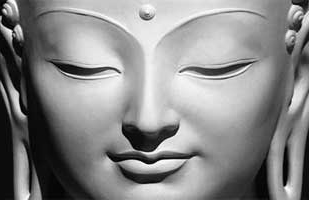
Chapter XII - ATTA VAGGA - The Self

EVIL IS EASY BUT GOOD IS DIFFICULT
Sukarani asadhuni attano ahitani ca
Yam 've hitan ca sadhun ca tam ve parama dukkaram. [163]
Easy to do are things that are evil and not beneficial to oneself, but very very difficult indeed, to do is that which is beneficial and good. [163]
XII: 07 The story of schism in the Order
One day, when the Buddha was giving a discourse in the Veluvana monastery, Devadatta came to him and suggested that since the Buddha was getting old, the duties of the Order should be entrusted to him (Devadatta); but the Enlightened One did not accept his proposal and Devadatta felt very insulted. From that time, he felt very bitter. He even tried to kill the Buddha, but all his attempts failed. Later he tried another tactic. This time, he came to him and proposed five rules of discipline for the bhikkhus to observe throughout their lives. He proposed (i) that the bhikkhus should live in the forest; (ii) that they should live only on food received on almsrounds; (iii) that they should wear robes made only from pieces of cloth collected from rubbish heaps; (iv) that they should reside under trees; and (v) that they should not take fish or meat. The Buddha did not have any objections to these rules and did not restrict those who were personally willing to observe them, but for various valid considerations,* he was not prepared to introduce these rules of discipline as binding laws on the Order in general. Devadatta claimed that the rules proposed by him were much better than the existing rules of discipline, and some new bhikkhus agreed with him.
One day, on being questioned by the Enlightened One, Devadatta admitted that he was trying to create a schism in the Order. Devadatta was advised that it was a very serious misdeed, but he paid no heed to the advice. Later, Devadatta informed Venerable Ananda that from that day onwards he would observe all his religious activities and perform monastic duties separately from the Order instituted by the Buddha. Ananda then reported the matter to the Master.
On hearing this, the Buddha reflected 'Devadatta is committing a very serious misdeed in dividing the Sangha Community, and he will have to suffer for his evil intention.' Then the Enlightened One said, 'For a virtuous person, it is easy to do good deeds and it is difficult to do evil; but for an evil one, it is easy to do evil and difficult to do good. Indeed, it is easy to do something which is not beneficial, but it is very difficult to do something which is good and wholesome.'
Then Devadatta, followed by a group of bhikkhus, broke off from the Order, and went to Gayasisa. However, the two Chief Disciples, Sariputta and Moggallana, were able to make many of those bhikkhus realise their mistakes and they returned to the Buddha
Notes:
* Some of these considerations are:
(a) Discipline should be self-imposed and not dictated by rigid rules.
(b) A rigid set of rules could be easily used by groups of people to repress individual freedom.
(c) Rules may not always be practical due to changes in locale and time.
Today, in the light of modern times, we can appreciate the wisdom of the Buddha in not having adopted these suggestions of Devadatta.

Editor for Buddha brothers: Matthew Laird Acred
If you should encounter any bugs broken links, or display errors just email us.
Buddha brothers has been running since Aug 2010 and can continue to run with your kind help!
If you love our website please donate so we can make this site even better !!